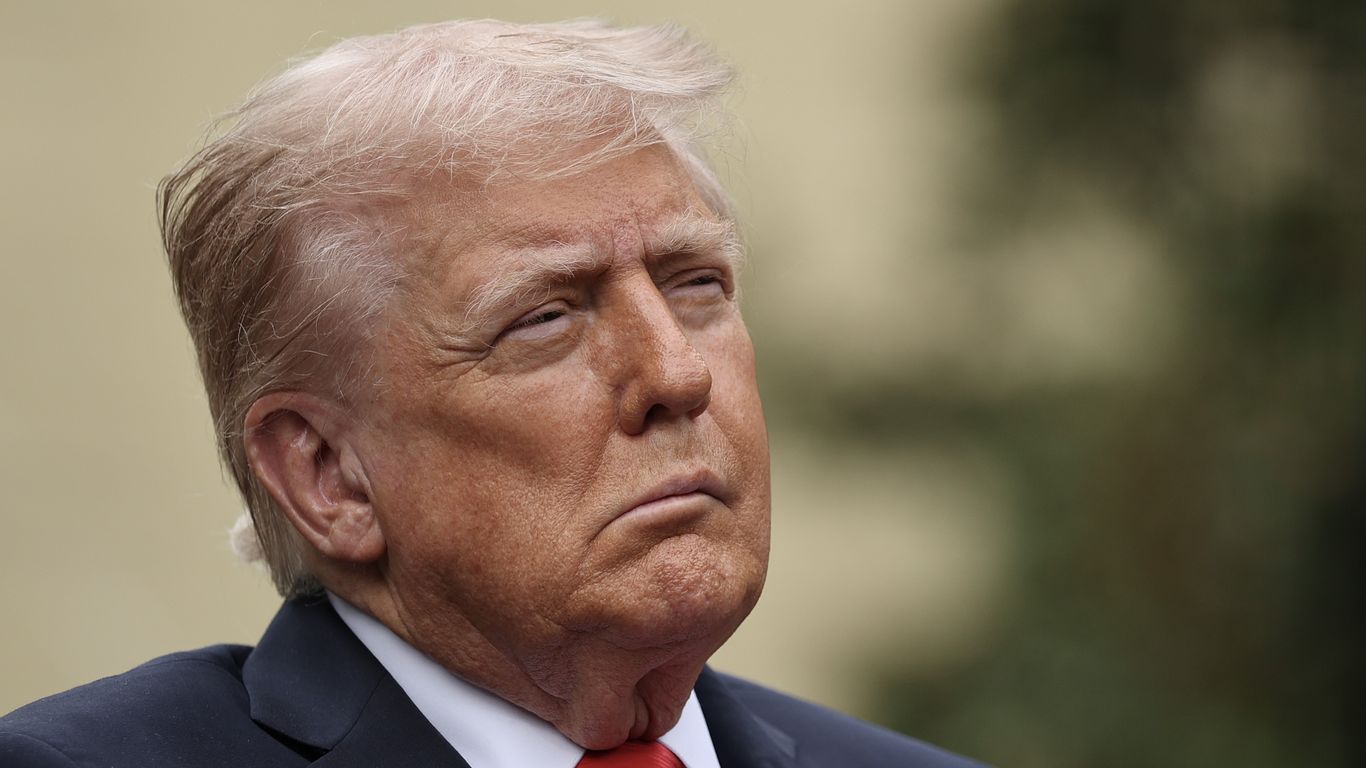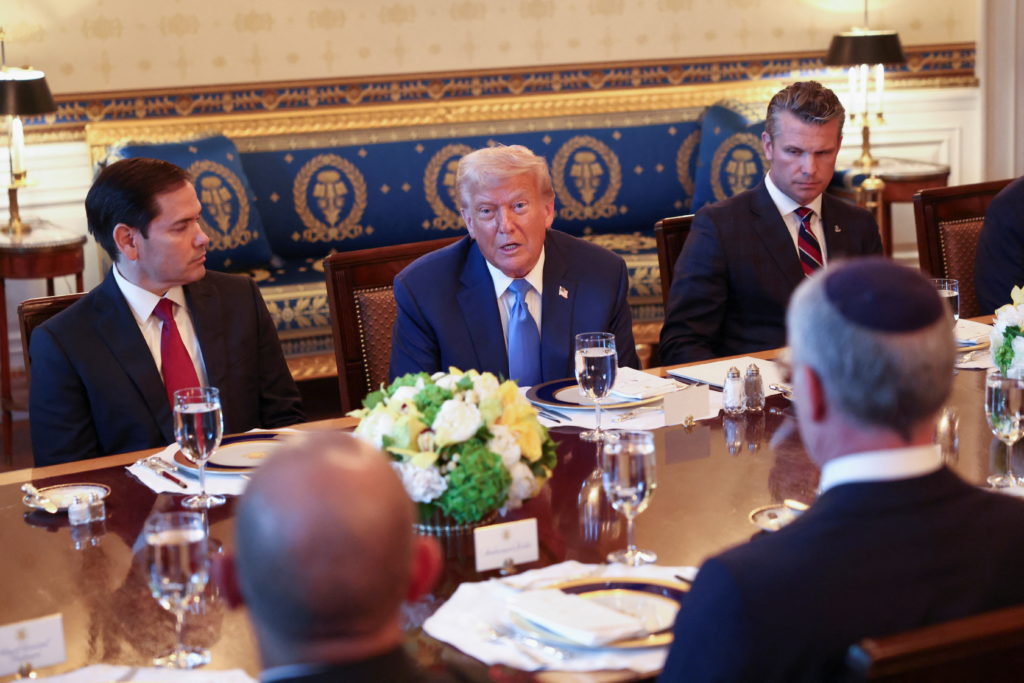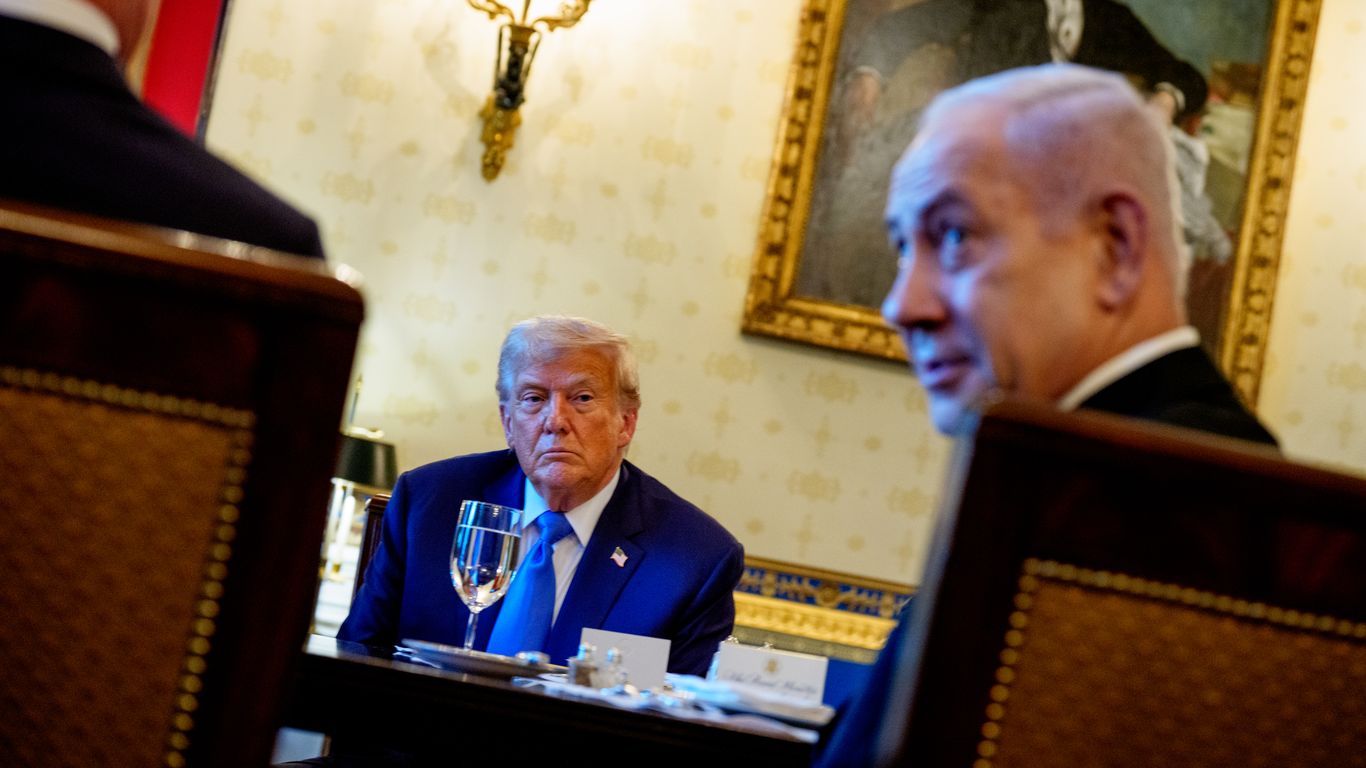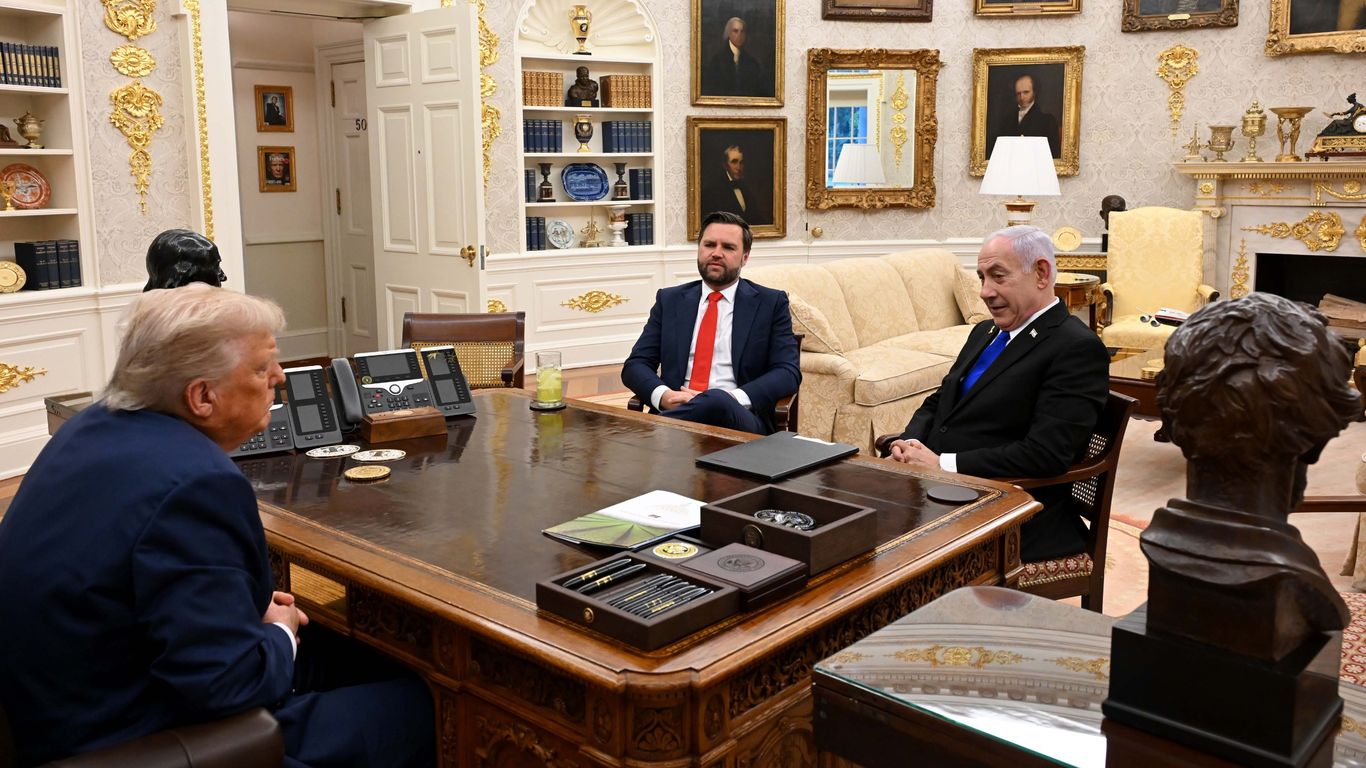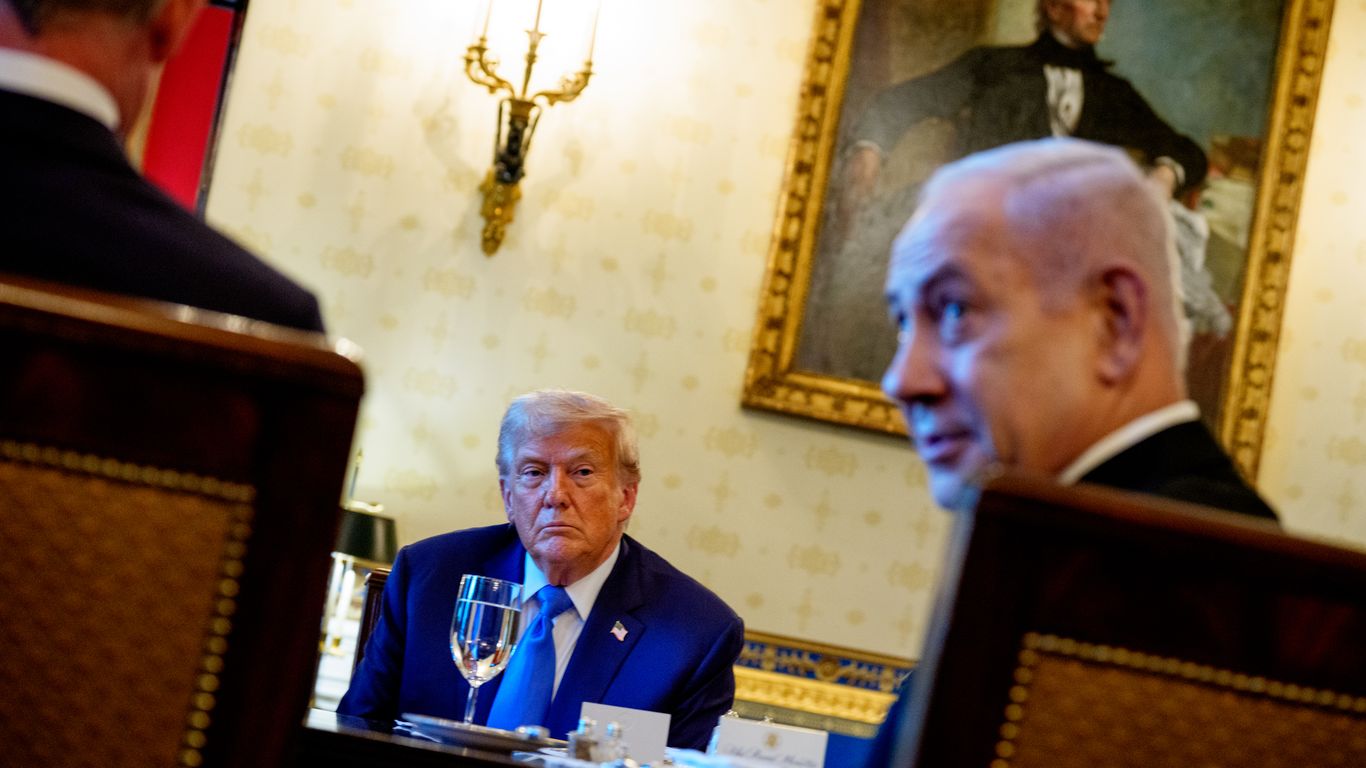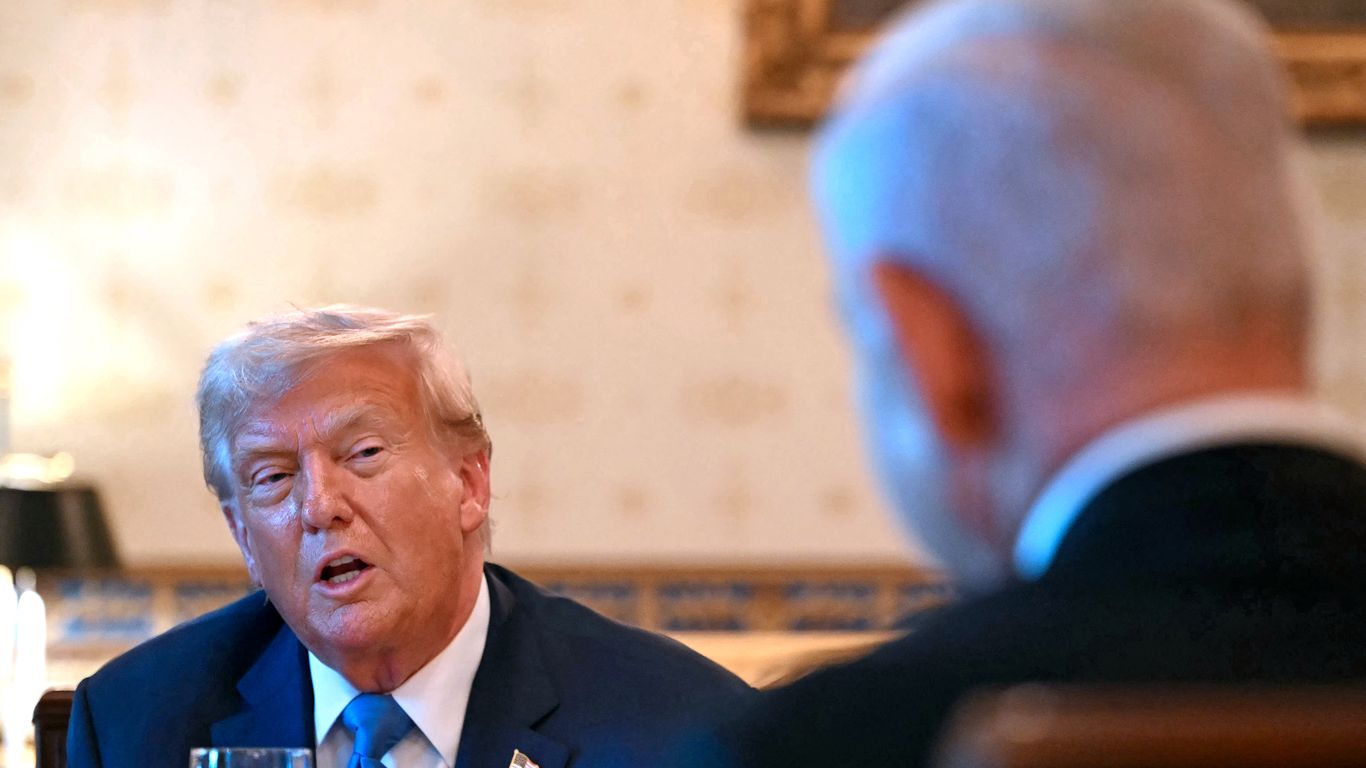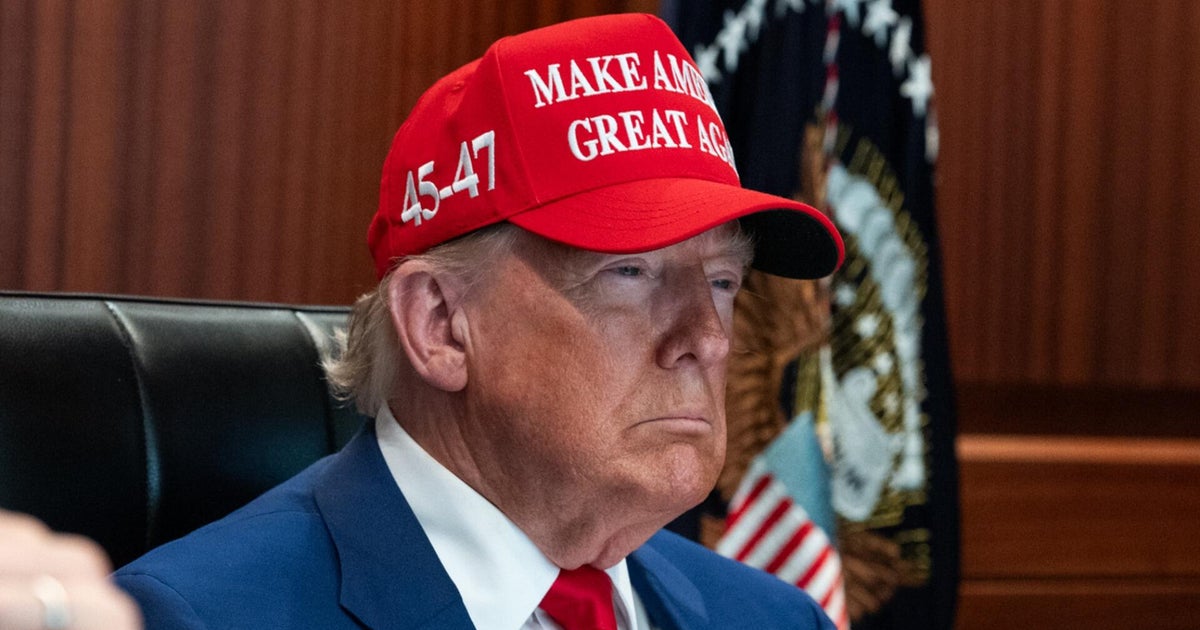Trump's Opposition to Israel Annexation Creates Space for Peace

Introduction
In a recent statement, President Trump declared that he will not allow Israel to annex the West Bank. This stance has had a significant impact, creating space for Arab nations to consider a U.S. plan for ending the war and rebuilding Gaza. This move has the potential to bring about a positive shift in the region's political dynamics.
Key Details
Trump's decision to oppose annexation is a significant departure from the traditional U.S. stance of supporting Israel's actions. This has opened up the possibility for Arab nations to engage in discussions and potentially support a U.S. peace plan. It also sends a strong message to Israel that the U.S. will not blindly back their actions, providing a foundation for more balanced negotiations.
Moreover, this move has put pressure on Israeli Prime Minister Benjamin Netanyahu, who has been a strong advocate for annexation, to reconsider his position. It also highlights the U.S.'s commitment to finding a peaceful resolution to the ongoing conflict in the region.
Impact
This public opposition from the U.S. has the potential to change the course of the long-standing conflict between Israel and Palestine. By creating space for negotiations and offering a potential solution, the U.S. is playing a significant role in shifting the dynamic of the region. It also sets a precedent for future U.S. involvement in the peace process.
Donald John Trump, born June 14, 1946, in Queens, New York, is an American businessman, media personality, and politician. He graduated from the University of Pennsylvania’s Wharton School in 1968 with a degree in economics. In 1971, he took over his family’s real estate business, renaming it the Trump Organization, through which he expanded into building and managing skyscrapers, hotels, casinos, and golf courses. Trump gained widespread fame as the host of the reality TV show *The Apprentice* from 2004 to 2015, which helped establish his public persona as a successful entrepreneur.
Trump entered politics as a Republican and was elected the 45th president of the United States, serving from 2017 to 2021. His presidency was marked by significant policy actions including tax cuts, deregulation, the appointment of three Supreme Court justices, renegotiation of trade agreements (notably replacing NAFTA with the USMCA), and a focus on immigration control including border wall expansion. He withdrew the U.S. from international agreements such as the Paris Climate Accord and the Iran nuclear deal, and engaged in a trade war with China. His administration’s response to the COVID-19 pandemic was criticized for downplaying the virus’s severity. Trump was impeached twice by the House of Representatives—first in 2019 for abuse of power and obstruction, and again in 2021 for incitement of insurrection—but was acquitted by the Senate both times.
After losing the 2020 election to Joe Biden, Trump challenged the results, culminating in the January 6, 2021, Capitol riot. He remains a central figure in American politics, having won the 2024 presidential election and returned as the 47th president in 2025, continuing to promote policies aimed at economic growth, border security, and military strength[1][2][3][4]. Benjamin Netanyahu, born on October 21, 1949, in Tel Aviv, Israel, is a prominent Israeli politician and diplomat who has served as Prime Minister of Israel three times (1996–1999, 2009–2021, and from 2022 onwards). He began his career in the Israeli military's special operations and later transitioned into politics in the late 1980s, joining the Likud party[1][2].
Netanyahu first became prime minister in 1996, during which time he signed the Hebron and Wye Accords, advancing peace efforts with the Palestinians. His administration focused on economic reforms such as government privatization, liberalizing currency regulations, and reducing deficits. After losing the 1999 election, he served as foreign minister and finance minister before reclaiming the Likud leadership in 2005[1][3][4].
Returning as prime minister in 2009, Netanyahu formed a national unity government and proposed a demilitarized Palestinian state recognizing Israel as the Jewish state, emphasizing security concerns. His tenure was marked by fluctuating peace negotiations with the Palestinians and contentious policies including settlement expansions. He also maintained a hawkish stance on Iran and supported the Iraq war[1][3][5].
In 2022, Netanyahu made a political comeback as prime minister, leading a coalition that included far-right parties. His leadership during this period has been pivotal amid the 2023–2024 Israel-Hamas conflict, with significant domestic and international implications[2].
Netanyahu is Israel’s longest-serving prime minister and remains a central figure in Israeli politics, known for his strong security policies, economic reforms, and complex role in the Israeli-Palestinian conflict. His career has been marked by both political resilience and controversy, reflecting his enduring influence on Israel’s domestic and foreign affairs[2][3][5]. The term "U.S." typically refers to the United States government, a complex federal organization established by the Constitution to govern the country through three branches: legislative, executive, and judicial. This separation of powers ensures a system of checks and balances to prevent any one branch from gaining too much control[1][3][8].
**What the U.S. government does:**
The government is responsible for creating and enforcing laws, conducting foreign policy, managing national defense, administering justice, and providing public services across diverse sectors including health, education, and infrastructure. It operates through multiple agencies and departments that implement policies and programs affecting citizens’ daily lives[3][6].
**History:**
Founded in 1789, the U.S. government’s structure is rooted in the Constitution, which created a federal system balancing power between national and state authorities. Over more than two centuries, it has evolved to meet changing political, social, and technological challenges, exemplified by the enduring publication of the *United States Government Manual* since the New Deal era[3][9].
**Key achievements:**
The U.S. government has played a critical role in shaping global democracy, promoting civil rights, pioneering technological innovation, and fostering economic growth. Landmark legislation and executive actions have addressed healthcare reform, environmental protection, and technological advancement. Recent administrations continue to impact sectors like technology, health, and taxation through executive orders and budget reconciliation processes[4][5].
**Current status:**
As of 2025, the U.S. government remains a vast and multifaceted institution with approximately thousands of state and local government units documented by the Census Bureau, reflecting its scale and complexity[2]. Contemporary challenges include adapting governance to rapid technological changes, maintaining public trust, and managing policy across federal and state lines.
**Notable aspects:**
The government’s commitment to transparency is demonstrated through publicly accessible resources like the *Government Manual* and detailed organizational charts. Its federal structure facilitates responsive governance while balancing power through constitutional check Israel is a highly developed democratic country in West Asia, known for its advanced free-market economy and significant contributions to global business and technology sectors. Established in 1948, Israel has grown into a regional powerhouse with a population of approximately 9.5 million as of 2025. It is the only country with a Jewish majority population and operates under a parliamentary democracy with strong political rights and civil liberties[2][5].
Israel's economy is among the most sophisticated in the Middle East, ranked 25th globally by nominal GDP according to the IMF in 2025. It boasts the second-largest number of startups worldwide, only behind the United States, and the third-largest number of companies listed on NASDAQ after the U.S. and China. This vibrant tech ecosystem attracts major multinational corporations such as Intel, Microsoft, Apple, IBM, Google, and Facebook, all of which have established research and development centers in Israel, often marking their first overseas R&D presence there[1]. The country’s main economic drivers include high-tech industries, industrial manufacturing, and diamond cutting and polishing, with the diamond sector accounting for 21% of exports in 2017[1].
Israel’s technological innovation extends to energy, with recent discoveries of natural gas reserves and a growing solar energy industry aiming to reduce dependency on imports[1]. Despite its small size, Israel's infrastructure rivals developed nations, supported by a sophisticated welfare state and a powerful military known for advanced capabilities, including nuclear weapons[1].
Regionally, Israel faces ongoing geopolitical instability and conflict, which influence its security policies and international relations. Internal and external tensions persist, particularly regarding the Palestinian territories, impacting both domestic and foreign policy dynamics[3][4]. Public opinion within Israel reflects concerns about international respect and peace prospects[6].
Overall, Israel stands out as a dynamic hub of innovation, economic resilience, and geopolitical significance, making it a critical player in global business and technology news. The **Palestine Liberation Organization (PLO)** is a key political umbrella organization founded in 1964 to unify various Palestinian groups that had operated independently, mainly as clandestine resistance movements against Israeli occupation. Its primary mission has been to represent the Palestinian people globally, particularly those displaced or living in areas affected by the Israeli-Palestinian conflict[1]. The PLO gained prominence after the 1967 Six-Day War and engaged in guerrilla warfare against Israel through the 1960s to the 1980s before transitioning to peace negotiations in the 1990s.
A major milestone for the PLO was the establishment of the **Palestinian Authority (PA)** in 1994, created under the Oslo Accords in cooperation with Israel. The PA has since served as the administrative body governing parts of the West Bank[1]. The PLO remains the dominant political force within the PA, seeking to advance Palestinian self-determination and statehood.
In recent years, Palestinian politics have been marked by internal divisions among factions like Hamas and Fatah, with ongoing efforts to unify these groups under a national consensus. For instance, in October 2025, multiple Palestinian organizations met in Cairo, mediated by Egypt and supported by Qatar and Turkey, to form a unified stance on Gaza's future governance, including proposals for a technocratic administration and elections, signaling a cautious shift from militant to civil governance models[2].
The international community continues to engage with the Palestinian question, promoting human rights and a two-state solution based on pre-1967 borders. The United Nations and related bodies actively support Palestinian rights and humanitarian needs, particularly amid ongoing conflicts and blockades in Gaza that have caused severe humanitarian crises[3][4]. In 2025, significant diplomatic efforts, including Security Council debates and a high-level UN conference, have focused on ceasefire implementation, Hamas disarmament, and recognition of Palestinian statehood by over 150 countries[5].
Notably, the P Discover related stories and their connections to this article Explore connected events with detailed insights and relationships Key entities mentioned across connected events Discover patterns and trends across related stories CNN review finds dozens of FBI witness interviews missing from Epstein files, fueling questions about transparency. Trump escalates pressure on Iran with sanctions, talks, and possible military options as negotiations resume. Exploring White House push for Israel to strike Iran first, amid worries of retaliation, casualties, and political calculations. Trump administration unveils an aggressive crackdown on healthcare fraud, freezing Minnesota funds and expanding Medicare/Medicaid integrity nationwide. Live updates on Donald Trump's state of the union address, highlighting border security, a booming economy, and executive orders.About the People Mentioned
Donald Trump
Benjamin Netanyahu
About the Organizations Mentioned
U.S.
Israel
Palestine
🔗 Connected Events Overview
📊 Quick Insights
📅 Connected Events Timeline
👥 People Involved in Connected Events
Connected through:
Connected through:
🏢 Organizations & Products
🏢 Organizations
🛍️ Products
💡 Connected Events Insights
🔥 Trending Topics
Trending Blogs in Politics

Missing FBI Records Spark Epstein Files Controversy

Trump Administration Escalates Iran Pressure: Sanctions, Diplomacy, and Military Contingencies

White House Strategy: Israel Might Strike Iran First

Federal Crackdown on Medicaid Fraud: Minnesota First, Nationwide Expansion

Trump's Bold State of the Union: Live Updates on a Secure Border and Booming Economy

